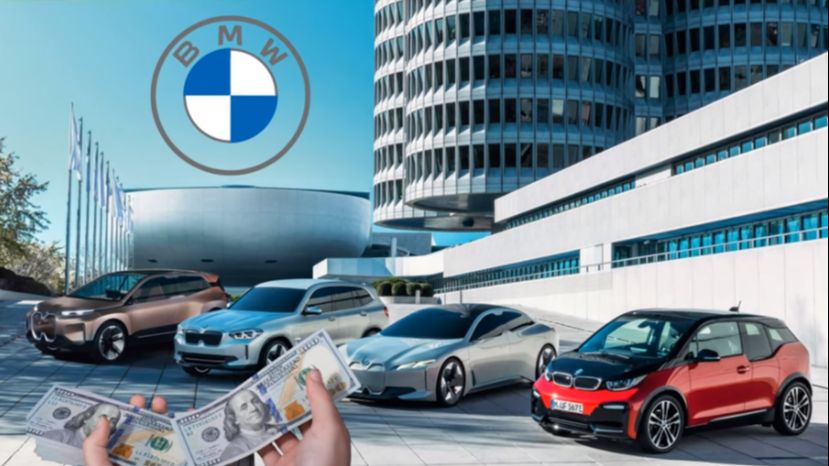Using the gasoline chain
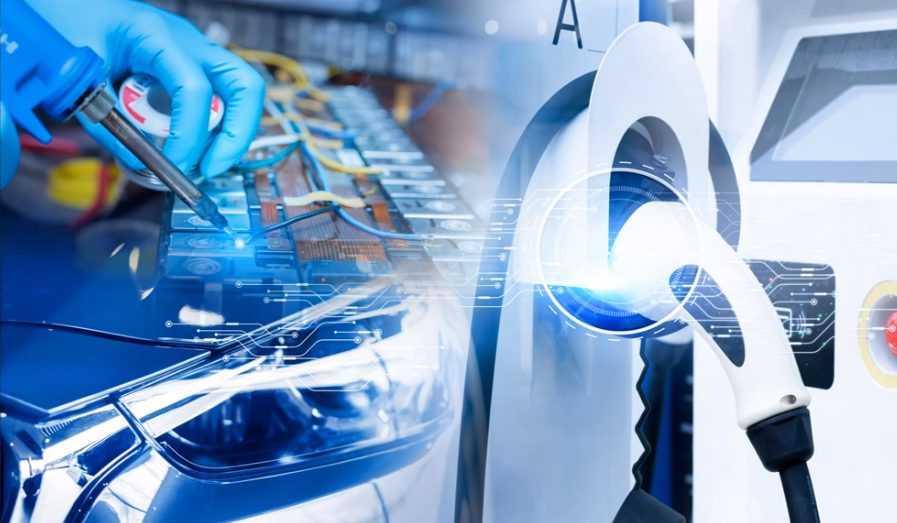
BMW electric cars are currently produced on the same assembly line as traditional gasoline-powered vehicles and have very similar exterior designs. BMW's strategy is to use the same common chassis for electric, hybrid, gasoline, and diesel vehicles. However, in the view of analysts, this is considered a clumsy and inefficient compromise that some traditional car manufacturers have applied as they try to compete with Tesla and Chinese electric car startups. But so far, this skepticism has brought success to BMW, as the company sold 376,000 electric cars last year, including mini-branded models, a 75% increase from the previous year.
In the luxury car segment, BMW ranks second only to Tesla, with 1.8 million units sold. Electric cars accounted for 95% of BMW's total sales in 2023, up from 9% the previous year. BMW's growth comes at a time when global electric car sales are growing more slowly. What's noteworthy is that unlike General Motors or Ford, BMW will profit from the electric cars they sell instead of selling at a loss like many other competitors. BMW's experience shows hope for at least some traditional car manufacturers as Chinese electric car companies like BYD begin exporting cars to Asian, European, and Latin American countries.
As electric cars become more popular, many customers still value the familiarity and experience of traditional car manufacturers and are hesitant to embrace new car brands. In this case, BMW's strategy may pave the way for other car manufacturers, those with decades of experience in car manufacturing but have not yet succeeded in transitioning to electric vehicle production. BMW's strategy has allowed the company more time to develop expertise in battery technology and design unique electric car models. This also helps the company, headquartered in Munich, to easily adapt to market demand changes by adjusting production volumes of different car models.
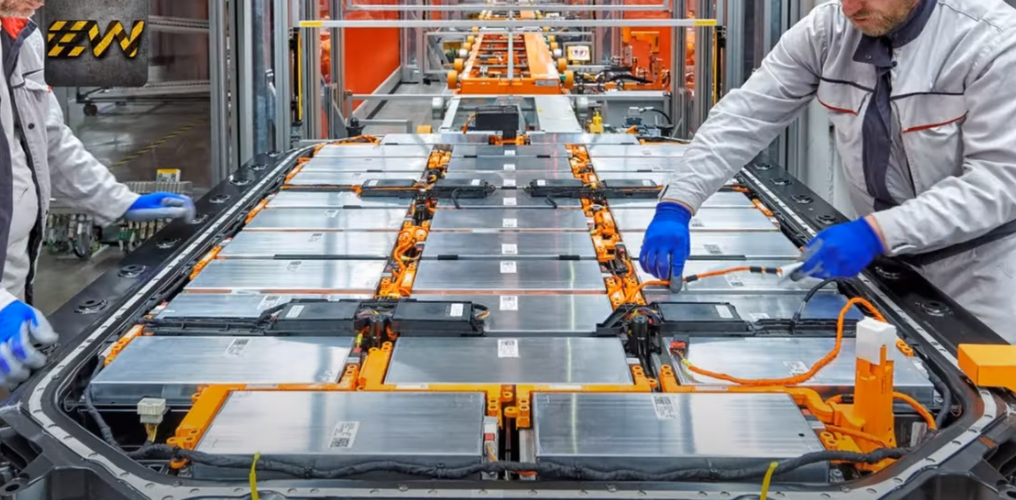
This approach also helps BMW retain customers interested in electric cars but not yet ready to completely abandon traditional internal combustion engines. The company offers hybrid versions for some of its best-selling models and states that customers can easily choose the engine technology for their cars just like choosing a paint color. In an interview, BMW's CEO Oliver Zipse stated that if they were to tell traditional customers that they are part of the old world, they would run away immediately. Next year, BMW will start selling a new line of electric-only designed cars.
Recently, at a location overlooking the treacherous underwater cliffs north of Lisbon in Portugal, at an event, Mr. Zipse introduced prototypes of a sedan and a versatile sports crossover, part of a project the company calls the new class. These new BMW models will bring significant improvements over current BMW models, including lithium-ion batteries that can store over 20% more energy per pound and features that Tesla does not have, such as a digital display running along the entire bottom edge of the windshield. This touch screen can be customized to provide the driver with information on speed, remaining range, weather, and navigation without having to take their eyes off the road.
At the same time, eliminating the need for a traditional dashboard clock in front of the steering wheel, most Tesla models have a large touch screen in the center of the control panel, forcing the driver to look to the side to view the map and other information. That screen also hosts many control buttons. In addition, the new BMW models are equipped with advanced autonomous driving technology that allows the driver to release the steering wheel when driving on the highway and change lanes simply by looking through the rearview mirror. This feature directly challenges the autonomous driving technology that Tesla has praised and advertised.
Advantages of a traditional car manufacturer
Since Tesla has proven over the past decade that electric cars are not only practical but also fun to drive, there is still a big question about who will dominate the electric car market in the future. Tesla has led in software and lithium-ion battery technology, but has struggled to mass produce and launch new models, while traditional car manufacturers with decades of manufacturing experience have had to struggle to learn new battery and software technologies. Matthew Fine, an investment fund manager at Third Avenue Management, said BMW has a chance to survive and succeed in the difficult transition to electric vehicles thanks to its technical expertise, strong brand, and high profit margins that have allowed the company to invest in new technologies. Fine stated, "We think this will give BMW a very good competitive opportunity, and so far it seems to be true."
The German luxury carmaker has begun transitioning to electric vehicle production with certain advantages. The BMW brand has recently topped the list of automakers producing the best cars according to Consumer Reports magazine for the past ten years. Meanwhile, Tesla ranks 18th out of 34 brands on that list. However, Tesla still has significant advantages; according to the US Environmental Protection Agency, the Tesla Model S has a starting price of $75,000 and can travel over 400 miles on a single charge, while the BMW i7 with a starting price of over $100,000 has a range of about 320 miles. BMW claims that their next generation of electric cars will bridge that gap with smaller lithium-ion batteries for a 30% longer range.
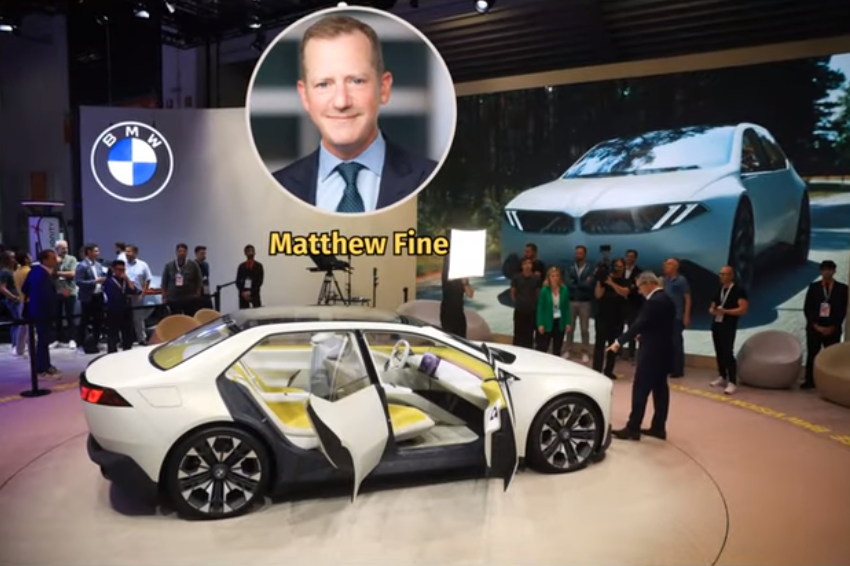
Tesla may be vulnerable in some aspects as the company's stock price has halved since its peak in 2021, while BMW's stock price has risen about 17% during the same period. However, Fourwolrd still values Tesla eight times higher than BMW in terms of market capitalization. Tesla's product line is becoming outdated compared to industry standards; the company recently started selling an upgraded version of the Model 3 in the US market, but they have not introduced a completely redesigned sedan or SUV since 2020. Tesla currently only produces the latest Cyber Truck model in very limited quantities since last year.
Mr. Zipse noted, without specifically mentioning Tesla, that new car companies entering the market may age before they truly mature if they are not careful. Test driving the electric version of the BMW 7 series luxury sedan, the i7 model, has impressed politicians and business CEOs, showing that convenience and user experience are crucial for a car company's appeal. This model is almost indistinguishable from the internal combustion engine version from the outside and is extremely quiet even at high speeds on the highway, equipped with a large entertainment screen that can automatically open and close from the car's ceiling. Zipse believes that BMW is not just a car manufacturer; BMW is indeed a car manufacturing company, but fundamentally BMW is a technology company capable of integrating many different technologies into a single product.
At BMW's headquarters in Munich, Germany, the company is demolishing old factories that were used to produce traditional internal combustion engines, making way for a completely new production line dedicated to the upcoming New class electric vehicles. The last V8 engine rolled off BMW's assembly line last year. BMW purchases most of its lithium-ion batteries from major suppliers like China's Catl, a supplier for Tesla as well, but BMW is still developing its own battery technology in a building with green and gray metal walls. BMW operates a small plant where they test new battery designs and production processes faster and cheaper. Starting in 2027, BMW will only produce electric vehicles at the Munich plant.
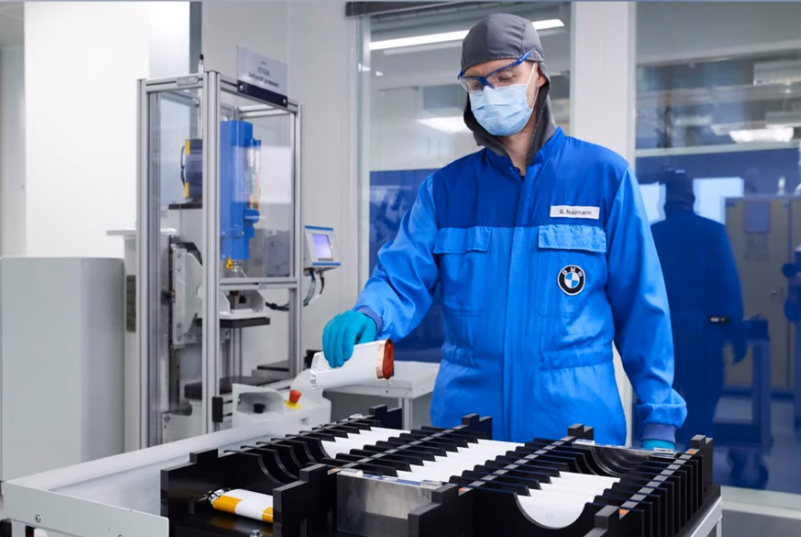
Although they continue to assemble traditional gasoline-powered models at other plants, BMW has large plants in Shenzhen, China, Spakenburg, the US, and several locations in Europe. They plan to start producing electric vehicles in the US by the end of this decade. Unlike Audi and other competitors, Mr. Zipse has refused to provide a specific extinction date for BMW's traditional internal combustion engines, drawing criticism from environmental groups. BMW could lead the European auto industry in the transition to electric vehicles if they make a clear commitment to ending the production of environmentally harmful internal combustion engines. Zipse also acknowledges that the future of the industry clearly lies in electric vehicles, noting that sales of traditional BMW models have stopped growing, with the fastest-growing segment being electric vehicles. Electric vehicles will dominate the market.
